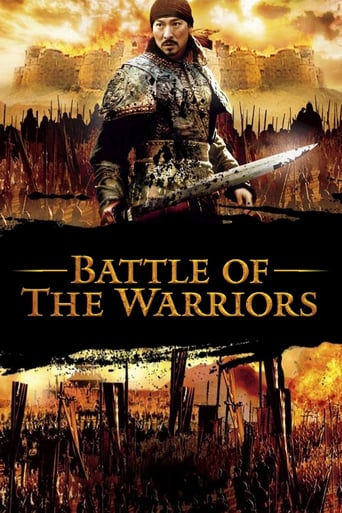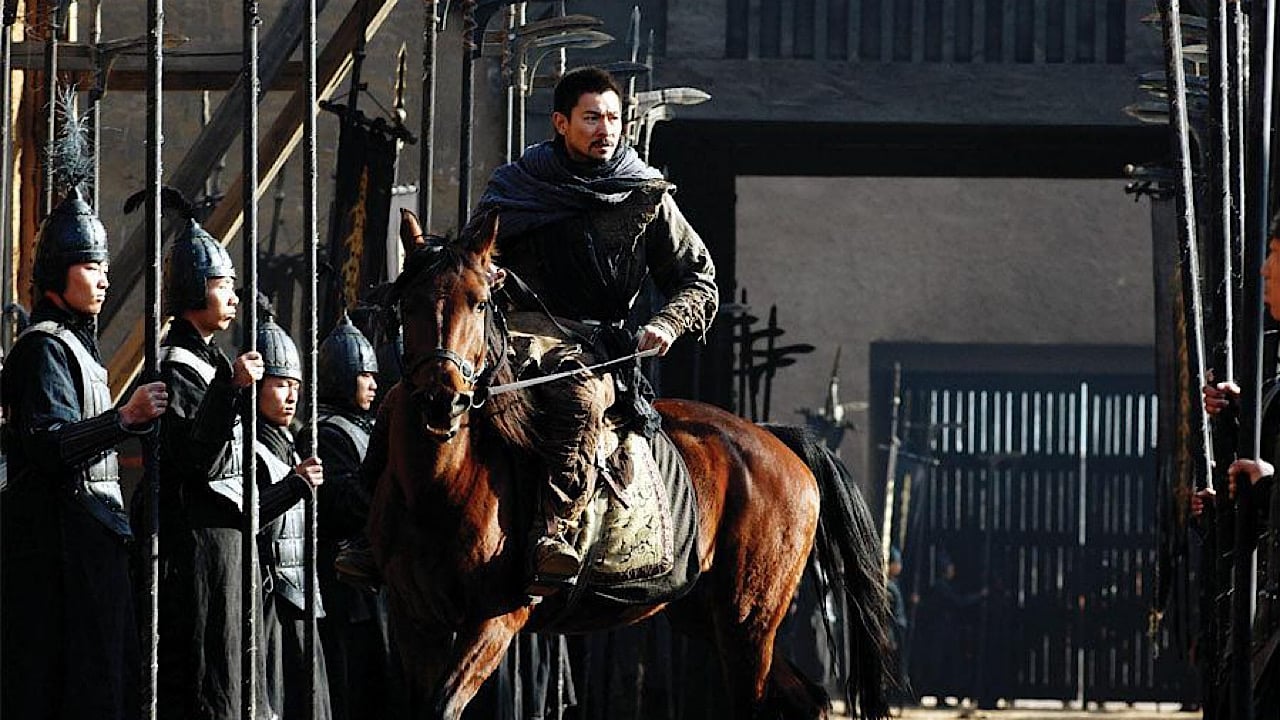Kalachakra
Around 500 BC, the four greatest civilisations in the world - Greece, Persia, India and China - had a flowering of philosophy, perhaps due to the spread of urbanisation.In Europe, Greek philosophers like Socrates, Plato and Aristotle lived, and schools like Stoicism, Cynicism, Platonism and Scepticism flourished.In the Middle East, mainly within Persia, but also conquered territories like Egypt and Judea, monotheism like Zoroastrianism and Judaism flourished.In India, some of the most sophisticated and rational systems of spirituality and psychology developed in Buddhism, Jainism, Ajivika and Vedic philosophy.In China, the 100 Schools of philosophy flourished, which included Confucianism, Taoism, Legalism - and Mohism - the latter being the subject of the film.While many cultural supremacists like to exaggerate the differences between countries, all of these philosophies fundamentally dealt with the same human condition, and shared a lot in common - for example, Stoicism and Buddhism were both intended as rational systems for coping with life and enhancing the mind - much of their wisdom revolves around acceptance that humans have limited power over the external world, so it is more rational to change oneself.Mohism, one of China's great contributions to human understanding, was suppressed by the first emperor of China when he burnt all the books of non-sanctioned ideologies (the Qin state followed Legalism) - and was further forgotten during the subsequent Han dynasty which promoted Confucianism - the ideology which remained the most influential in China, Korea and Vietnam.Surviving works were absorbed into the Taoist canon, and attempts to study Mohism are difficult thanks to it no longer being a 'living' tradition with an experienced lineage going back to it's founder. But what we do know, is that Mohism was similar to Buddhism and Christianity - a universalistic philosophy that believed in compassion toward all other humans. Mozi, it's founder, is said to have negotiated peace between kingdoms on the verge of war, and enhanced the fortifications of the kingdoms facing attack to dissuade violence.In this film, the protagonist is a Mohist tasked with defending a settlement during the Warring States period around 450 BC. Elements of Mohist philosophy are demonstrated in his actions, making it interesting film for anyone with inclinations toward learning. It is also a pretty good action film or drama, as other reviewers will point out.
imayne
The one thing that can be said of this film is its utter bipolarity. Few films have been this bad when misstepped, and this good when right.Andy Lau turns in a solidly chivalric turn as a wandering warrior-philosopher who aids a small city-state in defending a large, powerful army. He earns the ire of the city-state's opportunistic and mean ruler at the same time, and the love of a beautiful cavalry captain. Sounds like all the ingredients are there but the resulting mix varied wildly in quality. Other than Lau, Korean superstar Ahn Sung Ki as the enemy General, and Wang Zhiwen as the mean little ruler, a lot of the supporting cast is seriously vapid. Nicky Wu as an archer prince is a dishwater-dull Legolas-wannabe, and Choi Si Won as a spoiled prince is equally bad. Fan Bing Bing as the love interest and cavalry captain is lain excruciating. And don't get me started on the poorly-written African character.The battle scenes are also poorly-filmed. I swear I have recorded better looking battle scenes using a game of "Rome: Total War". The sweeping vistas have moments of bad CGI, and some of the scene transitions, such as having a scene turn from live action to an oil-painting, or an up-front shot of thousands of bodies getting skewered by arrows: lack even the spectacle to be tragic in their artificiality.And for a film that is about a Battle of Wits, it commits the unpardonable sin of resolving itself with a Deus Ex Machina I shall not reveal here.Yet, the film is interspersed with moments of rugged beauty and palpable tension, thrills and stoicism, heroism and epic grandeur, that make one wonder how a film that got so much right, could also get so much wrong.This is a movie I cannot really recommend, or not recommend in any sense. Watch at your own discretion.
cappocanieri
This movie is based on comic or in Asia popular with name manga. So the time setting, all the cast in this movie is just fiction. But maybe, the author just inspired from great Chinnese history. Especially with a hero name Zhuge Liang. Why? Because there's a lot of common between Zhuge Liang and main cast in this movie Ge Li. Ge Li is a wonderful hero that can beat thousands of enemy troops with only 400 hundred soldiers. He knows exactly how to defend a city and he knows how to build o fortress less than a week. Maybe he knows all war strategies and tactics. But he also has one little problem, he is to idealistic. Maybe what happen in the movie is also happen in our present life today. No one could really good to everybody. Good for who? No one could express his universal love just like bible said. When a man tried to do that, everybody around him will looking for a way to make him fall. That's all. I love the movie.
kjuwong
being a huge fan of the original Japanese manga version of the Muk Gong, i have a big expectation to see this movie, and it doesn't disappoint. whereas the original manga covers much deeper the Mo Jia theories and their developments and the meaning behind, the movie actually adapted the storyline splendidly (though some may find some scenes towards the end a bit incoherent, you will know if you have read the manga) and the movie focus more about the ethnics of war. A big tension about the film is that Ge Li (andy lau) has to use warfare strategies to spread his self-sacrifice/non-attack/cross-spectrum love ideals (i believe this is how a Chinese philosophy get closest to the Christian ideal), moreover his existence is only valid during war time period, this contradiction of Ge Li can actually explain the developments of the movie. the director Chi Leung Cheung spent more than 10 years to do this movie and andy lau said in interviews that without Cheung he wouldn't take the post of Ge Li, this movie is definitely not only about the visual, but the inner meanings of the now almost forgotten Mo Jia. Sometimes it makes you wonder how china would be like if Mo Jia (along with many more other Jias; Jia = schools of thought) were not abandoned... i recommend all those who like the movie to check out the manga and novel as well...


 AD
AD


